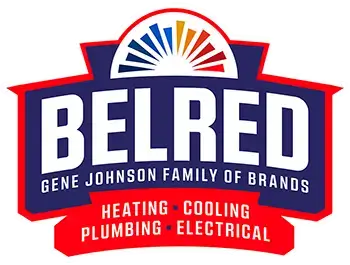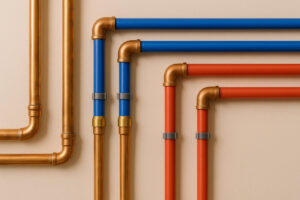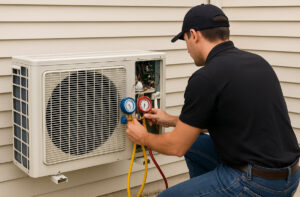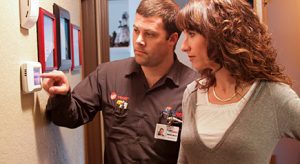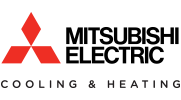Seattle homeowners often find themselves juggling different heating and cooling systems to stay comfortable throughout the year. A furnace for the chilly, damp winters, an AC unit for those surprising summer heat waves, it can feel like a lot to manage.
The question many are now asking is whether a single system can take care of both needs. Enter the modern heat pump. With efficiency ratings climbing and technology improving, more families are turning to heat pumps as an all-in-one solution. But can they really replace both a furnace and an air conditioner in a Seattle home? Let’s break it down.
What Is a Heat Pump and How Does It Work?
A heat pump is a versatile system that both heats and cools your home. Instead of generating heat by burning fuel, like a furnace does, it transfers heat from one place to another. In winter, it pulls warmth from the outdoor air and brings it inside. In summer, it reverses the process, moving heat out of your home to keep things cool.
The technology may sound futuristic, but it’s been around for decades. What makes today’s models so appealing is how much more efficient they’ve become. With variable-speed compressors and high SEER2 ratings, heat pumps are designed to deliver year-round comfort in climates like Seattle’s without driving up energy costs.
Pros & Cons of Heat Pumps
Heat pumps come with plenty of benefits, but there are also some things to consider before making the switch.
Heat Pumps: The Pros
- Year-Round Comfort: One system handles both heating and cooling, simplifying your home setup and eliminating the need for separate units.
- Energy Efficiency: With high efficiency ratings, heat pumps often cost less to operate than traditional systems, especially in moderate climates like the Pacific Northwest.
- Lower Carbon Footprint: Because they don’t burn fossil fuels, heat pumps are a more environmentally friendly option for heating your home.
- Consistent Comfort: Heat pumps provide steady airflow and temperature control without the big swings often felt with traditional furnaces.
- Eligibility for Incentives: Federal tax credits and local rebates can make heat pump installation more affordable, helping offset the upfront investment.
Heat Pumps: The Cons
- Higher Upfront Cost: Heat pumps usually require a bigger initial investment compared to standard furnaces or AC systems.
- Reduced Efficiency in Extreme Cold: In very low temperatures, a heat pump may need backup heating, although Seattle rarely sees such extremes.
- Electrical Dependency: Since heat pumps run on electricity, outages can temporarily affect heating and cooling unless paired with a backup generator.
For Seattle homeowners, the pros often outweigh the cons, but every household is unique. A professional consultation can help determine if a heat pump is the right fit.
How Do Central AC Systems Work?
A central air conditioning system is designed to cool your entire home by circulating refrigerated air through ductwork. The system absorbs heat from indoors, expels it outside, and pushes cooled air through vents in each room.
It’s a familiar setup for many households, especially in warmer climates. In Seattle, where summers are mild with occasional hot spells, central AC has historically been viewed as optional. But with increasingly warm summers, more families are adding air conditioning services to stay comfortable during those sweltering weeks.
Pros & Cons of Central AC Systems
Like any major home system, central AC has strengths and drawbacks.
Central AC Systems: The Pros
- Whole-Home Cooling: Provides consistent comfort throughout every room via ductwork.
- Improved Indoor Air Quality: Can be paired with filtration systems to reduce allergens and dust.
- Durable Performance: With proper maintenance, central AC units can last 15 years or more.
- Quiet Operation: Most of the noise stays outside, keeping interiors peaceful.
- Increased Home Value: Homes with central AC often appeal more to buyers.
Central AC Systems: The Cons
- Upfront Installation Cost: Adding ductwork or replacing old systems can be expensive.
- Energy Usage: Standard AC units can consume a lot of power during hot spells.
- Cooling Only: Unlike heat pumps, AC systems don’t provide heating.
For households that already have a furnace, central AC pairs well. But as a standalone solution, it only addresses half the year’s comfort needs.
How Do Furnaces Work?
A furnace generates heat by burning fuel (usually natural gas) or using electricity, then distributing the warm air through ducts. It’s been the go-to heating method for decades in colder regions.
In Seattle, natural gas furnaces are common because they’re reliable and deliver powerful heat during damp winter months. Furnaces are straightforward, effective, and familiar, which is why many homeowners still prefer them even as new technologies emerge.
Pros & Cons of Furnaces
Furnaces: The Pros
- Powerful Heat: Furnaces quickly warm up a house, even on the coldest days.
- Long Lifespan: Gas furnaces can last 20 years or more with regular maintenance.
- Widespread Availability: Parts, service, and installation expertise are easy to find.
- Fast Response: When you adjust the thermostat, furnaces heat up quickly.
- Flexible Fuel Options: Available in natural gas, propane, or electric models.
Furnaces: The Cons
- Higher Operating Costs: Fuel costs can add up, especially in older or less efficient units.
- Less Efficient: Compared to heat pumps, furnaces use more energy to generate heat.
- Carbon Emissions: Gas furnaces produce greenhouse gases, making them less eco-friendly.
- Separate Cooling Needed: Furnaces only heat, requiring a separate AC system for summer.
- Maintenance Demands: Furnaces require regular inspections and upkeep to run safely.
Furnaces do their job well, but they only cover half of a home’s comfort needs, and they can be less efficient than modern alternatives.
The Efficiency of Heat Pumps for Greater Seattle Homes
Seattle’s moderate climate makes it one of the best places for heat pump adoption. Unlike areas with extreme cold, the Pacific Northwest rarely experiences temperatures that push heat pumps beyond their limits. That means they operate efficiently year-round without relying heavily on backup systems.
For many families, heat pumps reduce overall energy consumption while simplifying their setup, no need for both a furnace and central AC. With higher SEER2 ratings and improved technology, today’s heat pumps are more reliable and cost-effective than ever. For Seattle homeowners looking to cut bills and shrink their carbon footprint, heat pumps offer a smart, future-ready solution.
Contact BelRed Today for Superior Heating, Cooling, and Energy-Efficiency Solutions!
At BelRed Heating, Cooling, Plumbing & Electrical, we’ve been helping families in the Greater Seattle area find the best comfort solutions since 1986. Whether you’re considering a furnace replacement, central AC installation, or switching to a heat pump, our team has the knowledge and products to guide you.
We specialize in tailoring solutions to each household’s unique needs, with a focus on safety, comfort, and long-term savings. If you’re curious about whether a heat pump can replace both your furnace and AC, give us a call today. We’ll walk you through your options and help you make the decision that’s right for your home.
